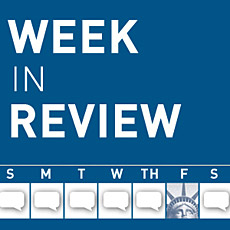
Against whom did the ACLU win a major victory in the fight against warrantless cell phone location tracking?
Which amendment protects photographers' right to take pictures of things that are plainly visible in public spaces?
How much do you have to pay to visit a loved one in an Arizona prison?
What organization is appealing a decision that upholds a private citizen’s First Amendment right to free speech?
At what Missouri college will ALL new students have to take a mandatory drug test to attend classes?
ACLU Wins Round in Battle Against Warrantless Cell Phone Location Tracking
This week, the ACLU won a significant victory in our battle to ensure that cell phones don’t become Big Brother tracking devices. Following a four-year fight, an appeals court ordered the Department of Justice to comply with our Freedom of Information Act request and turn over the names and docket numbers in numerous cases where the government accessed cell phone location data without a warrant.
Is it Legal to Photograph or Videotape Police?
Recently, an appeals court ruled, on behalf of an ACLU client, that Americans have a First Amendment right to videotape the police making an arrest in a public park. Taking still and video photographs of things that are plainly visible in public spaces is a constitutional right — and that includes the outside of federal buildings, as well as transportation facilities and police and other government officials carrying out their duties. Of course, as with everything, there are some narrow exceptions and limits. That's why we have created a new web resource on photographers' rights, including a "Know Your Rights" page. Everyone — photographers and police — should be clear on what rights we have in America when engaging in photography in public spaces.
Charging for Prison Visits is Bad Business
We thought we’d heard it all when it came to the crazy ways corrections departments try to save money. That is, until we learned this week that the Arizona Department of Corrections is charging people a $25 "background check fee" to visit their loved ones in prison. Except one prison official admitted the fee will not actually pay for background checks, but are instead intended to make up part of the state deficit. Either way, the policy will make it more difficult for prisoners to remain in contact with family and friends, jeopardizing recidivism rates and our public safety.
Censoring Military Personnel Is Un-American
This week, the ACLU filed a brief in a case on behalf of Col. Morris Davis, who was fired from his job at the Congressional Research Service (CRS) for publicly criticizing the Obama administration’s decision to try some Guantánamo detainees in federal courts and some in the military commissions system.
Pass a Drug Test Before You Can Pass a Class
This week, a college in Missouri broke the law and violated the Fourth Amendment rights of its students. Linn State Technical College became the first public institution of higher learning to implement mandatory drug testing of all new students, as well as those returning from extended leaves of absence. Do you know a student at Linn State? We’re looking for plaintiffs!
This is your week in civil liberties. Let us know if this is useful or if you'd like to see changes. Share your thoughts: mailto:ideas@aclu.org.
Learn more about your rights: Sign up for breaking news alerts, follow us on Twitter, and like us on Facebook.

